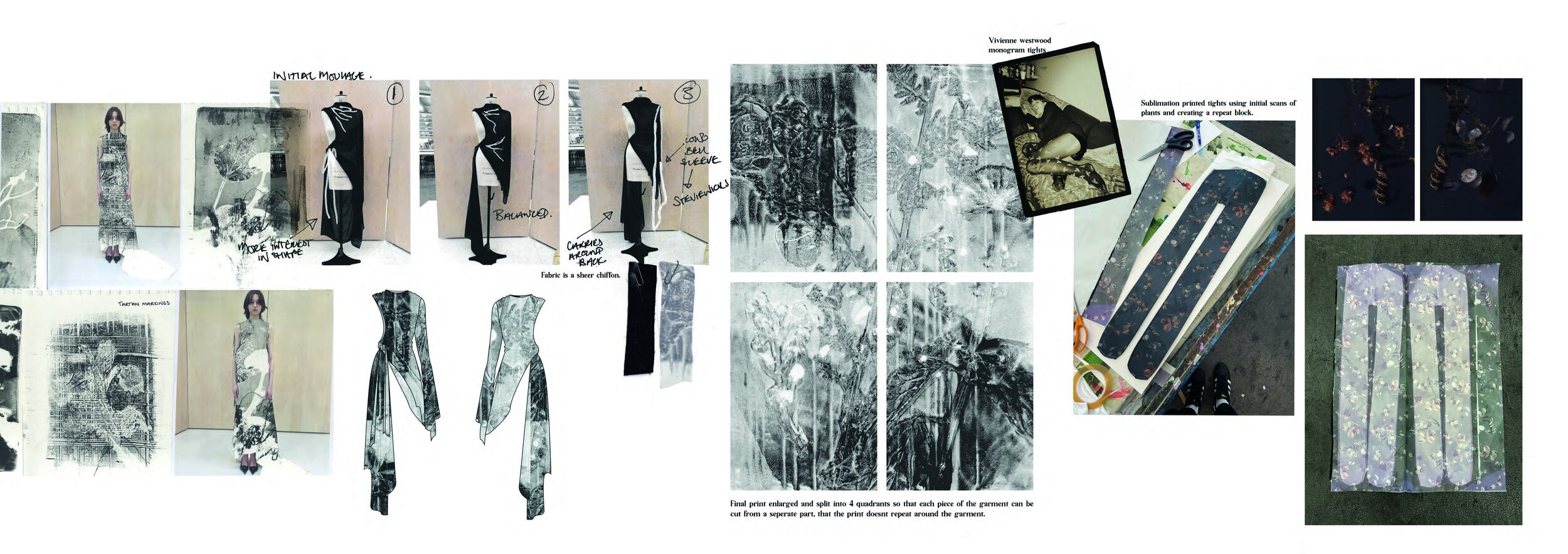Kirsten Cochrane
Nicnevin
Nicnevin’ is an AW23 Collection inspired by the great Scottish witch hunt of the late 15 and 1600s and the reasons in which women were accused of witchcraft; their intimidating knowledge and intelligence, their sexual freedom or promiscuity, and their connection to nature. Still to this day strong and outspoken women are treated bitterly and silenced over 500 years later. The organisation ‘Witches of Scotland’ are campaigning to the Scottish government to pardon those who were historically tried and killed as witches, seeking justice so that their souls may rest at peace.
In this project I will be linking the way these women were persecuted to current affairs including the revoking of women’s rights surrounding her sexuality and bodily autonomy, and redefining the witch, a woman who is willing to challenge the norm, politically radical, provocative, sexually liberated and reclaiming the word as a symbol of female power.
I will be referencing historic garments from the 17th century at the time of the witch trials and juxtaposing 1970s punk subculture with female pioneers such as Jordan Mooney and Vivienne Westwood, alongside imagery exploring punk zines, occult erotica and the femme fatale.
With nods to my own Scottish roots, I investigate traditional fabric techniques and the landscapes around me where these women existed for colour and texture. I use leather for its durability that will stand the test of time & show domination, as well as donated deadstock Harris Tweed. In my print experimentation I use traditional methods such as monoprinting, relief printing and collagraphs to communicate the nature that they were surrounded by and nurtured so greatly as well as sublimation printing to create ethereal and atmospheric textiles. Using herbs, leaves and dried plants all found in my garden and the Pentland hills on my doorstep, one of the many places in Scotland that witch trials took place, I want to create beautiful prints inspired by the land and nature that the women accused of witchcraft lived. For some of these women it was their knowledge of herbal medicines and connection to nature, and ability to yield healthy crops that lead their neighbours to suspect their links to the occult.










